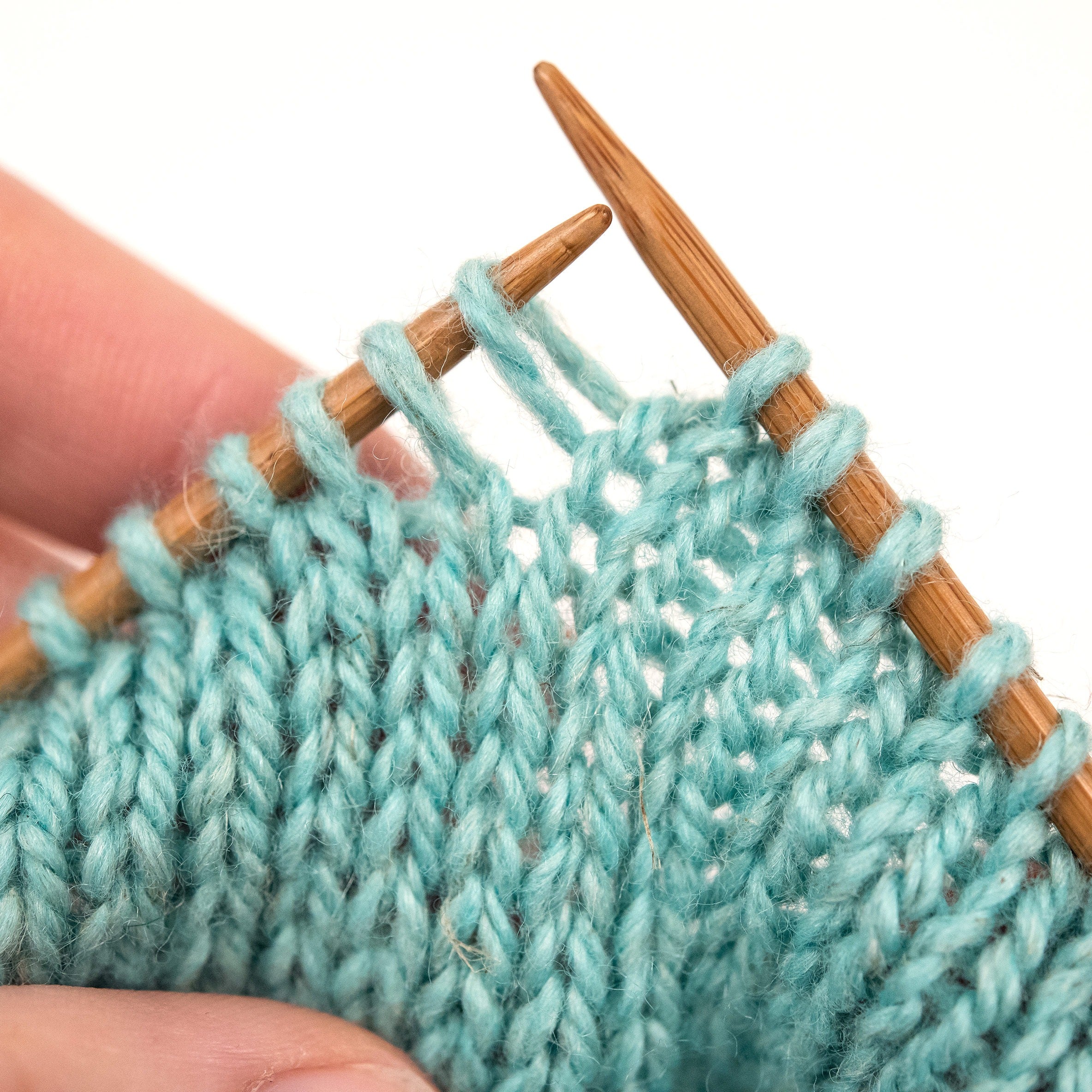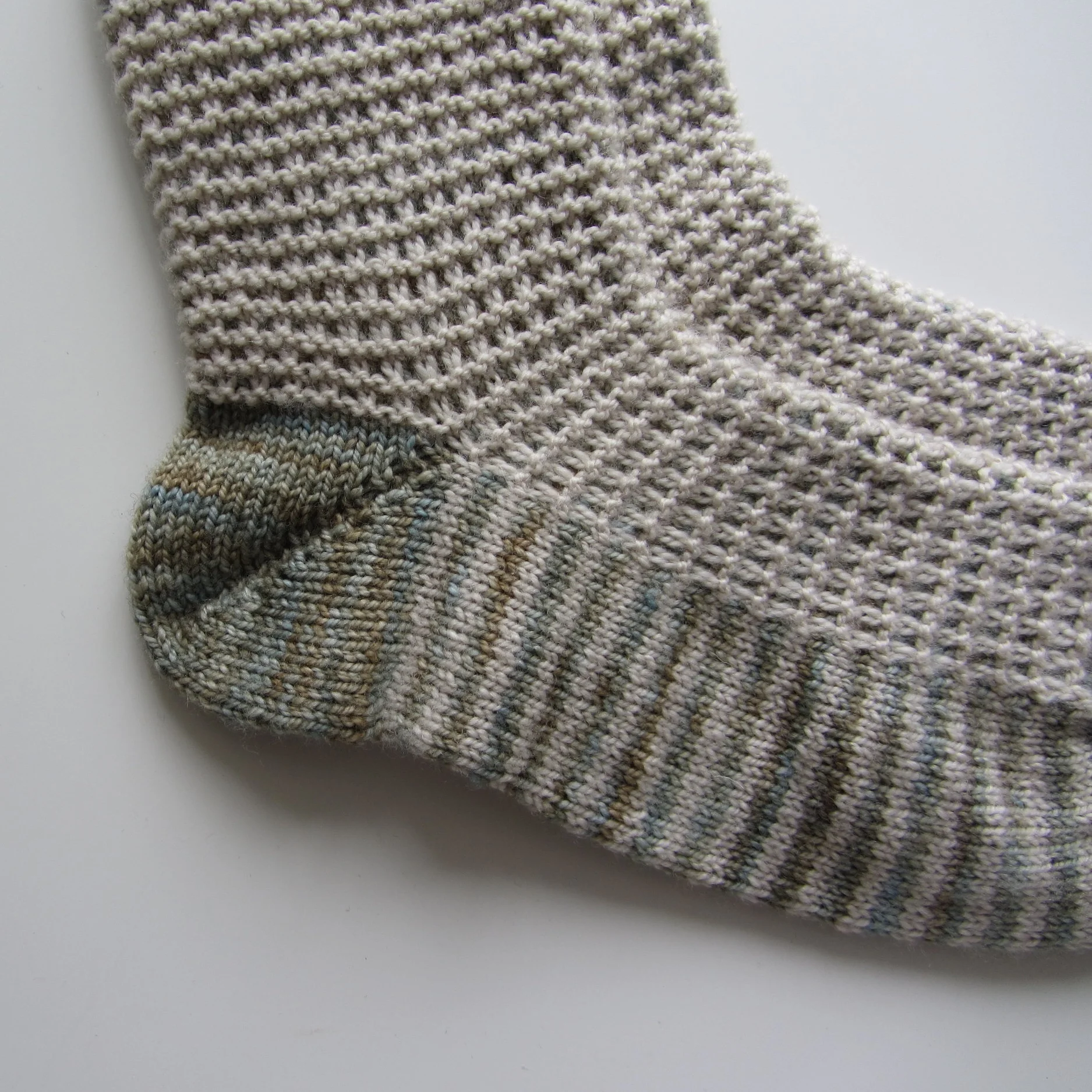Knitting Short Rows
Knitting Short Rows - Web before you begin short row knitting, read this exclusive, free resource on knitting short rows—one knitting technique every successful knitter should know! Web get the free video. Bring the yarn to the front (figure 2). Even beginners will be able to knit them! With yarn in back, insert the right needle tip purlwise into the next stitch, and slip it to the right needle (figure 1). A short row is created by knitting so far along your row, then wrapping a stitch, turning the work, wrapping again, and continuing to knit. We use the technique where the garment requires shaping or an armhole or neckline. They shape everything from bust darts to ear. We use short rows in knitting when a pattern requires a piece of work to be smaller than the full width of the knitting. Learn how to knit german short rows. How are short rows created? They accomplish this by partially knitting an existing row to a predetermined stitch count, then turning the work and working back to the same (or another) count, and turning again. Short rows are used to create triangles or wedges within your knitting. We use the technique where the garment requires shaping or an armhole or. They’re exactly what they sound like: We use the technique where the garment requires shaping or an armhole or neckline. Learn how to knit german short rows. Where to use short rows in knitting. This video demonstrates how to work short rows using the wrap and turn method. This video demonstrates how to work short rows using the wrap and turn method. Knit to the turning point; Web how to knit short rows: The extra rows you create look like triangles or wedges. Web before you begin short row knitting, read this exclusive, free resource on knitting short rows—one knitting technique every successful knitter should know! Web a “short row” is simply what happens when you work across a row but don’t get to the end. We use the technique where the garment requires shaping or an armhole or neckline. We use short rows in knitting when a pattern requires a piece of work to be smaller than the full width of the knitting. 50k views. Knitting instructions sometimes will tell you to wrap and turn in the middle of a row when you are knitting short rows. Techniques for great shapes and angles. Web how to knit short rows: Even beginners will be able to knit them! Partial rows in the knitting that create curves, soft angles, and depth. The extra rows you create look like triangles or wedges. They’re exactly what they sound like: The pattern instructs you to go almost to the end (maybe one or two stitches before), and then turn around and go back. Web short rows in knitting is a technique which allows creating different shapes, not knitting to the end of the row.. They accomplish this by partially knitting an existing row to a predetermined stitch count, then turning the work and working back to the same (or another) count, and turning again. Web get the free video. Web a “short row” is simply what happens when you work across a row but don’t get to the end. They shape everything from bust. Bring the yarn to the front (figure 2). Web a “short row” is simply what happens when you work across a row but don’t get to the end. Shape your knitwear seamlessly using short row techniques, including wrap & turn, yarnover, german and japanese methods, and twin stitch shadow wraps. Short rows are used to create triangles or wedges within. Web short rows are a technique for shaping the knitwork that allows you to knit a gentle curve or slope by adding extra length of fabric to parts of your knitting. Web short rows in knitting is a technique which allows creating different shapes, not knitting to the end of the row. Where to use short rows in knitting. Insert. Web get the free video. The pattern instructs you to go almost to the end (maybe one or two stitches before), and then turn around and go back. It's just a general technique to avoid holes and gaps whenever you turn your work around in the middle of a row and continue in the other direction. Web the sweater collective.. Web short rows allow you to add length or width to just one part of your knitting, shaping it to create darts or gussets in garments, the turn of a heel in socks. They're incredibly easy, neat and comfortable to wear. Partial rows in the knitting that create curves, soft angles, and depth. Learn how to knit perfect short rows with the wrap and turn method. Insert the r needle from behind, under the wrap, and then into the wrapped stitch, then purl them together. Learn how to knit german short rows. Even though i use two colors, you can also knit them with the same yarn. Knit to the turning point; Web short rows are used to create extra fabric in your knitting, which is great for shaping. 161k views 5 years ago tutorials. This video demonstrates how to work short rows using the wrap and turn method. They’re exactly what they sound like: Web get the free video. It's just a general technique to avoid holes and gaps whenever you turn your work around in the middle of a row and continue in the other direction. This creates a domed shape that is good for heels and other curvy parts of the body. Sometimes a pattern may call for short rows to shape the garment.
German ShortRows Tutorial Knitting Interweave

How To Knit Short Rows A Simple Guide For Beginners

How To Start A New Row In Knitting / Short Rows Wrap + Turn Ladies
Easy Short Rows How to Knit German Short Rows Sister Mountain

How to Work Short Rows In Knitting Using the Wrap and Turn Method (2

How to Add Short Rows to Your Sweater knotions

How to Knit Wrap & Turn ShortRows Knitting Interweave

Short Row Knitting Patterns A Knitting Blog

Mari Knits Short Rows Tutorial Part 1 What are short rows?

Short Rows Wrap and Turn Kelbourne Woolens
Work To The Turning Point, Turn Your Work, Slip The First Stitch And Tighten Yarn, And Then Work The Rest Of The Row As You Would Normally.
Short Rows Are Used To Create Triangles Or Wedges Within Your Knitting.
Web Short Rows In Knitting Is A Technique Which Allows Creating Different Shapes, Not Knitting To The End Of The Row.
They Accomplish This By Partially Knitting An Existing Row To A Predetermined Stitch Count, Then Turning The Work And Working Back To The Same (Or Another) Count, And Turning Again.
Related Post:
